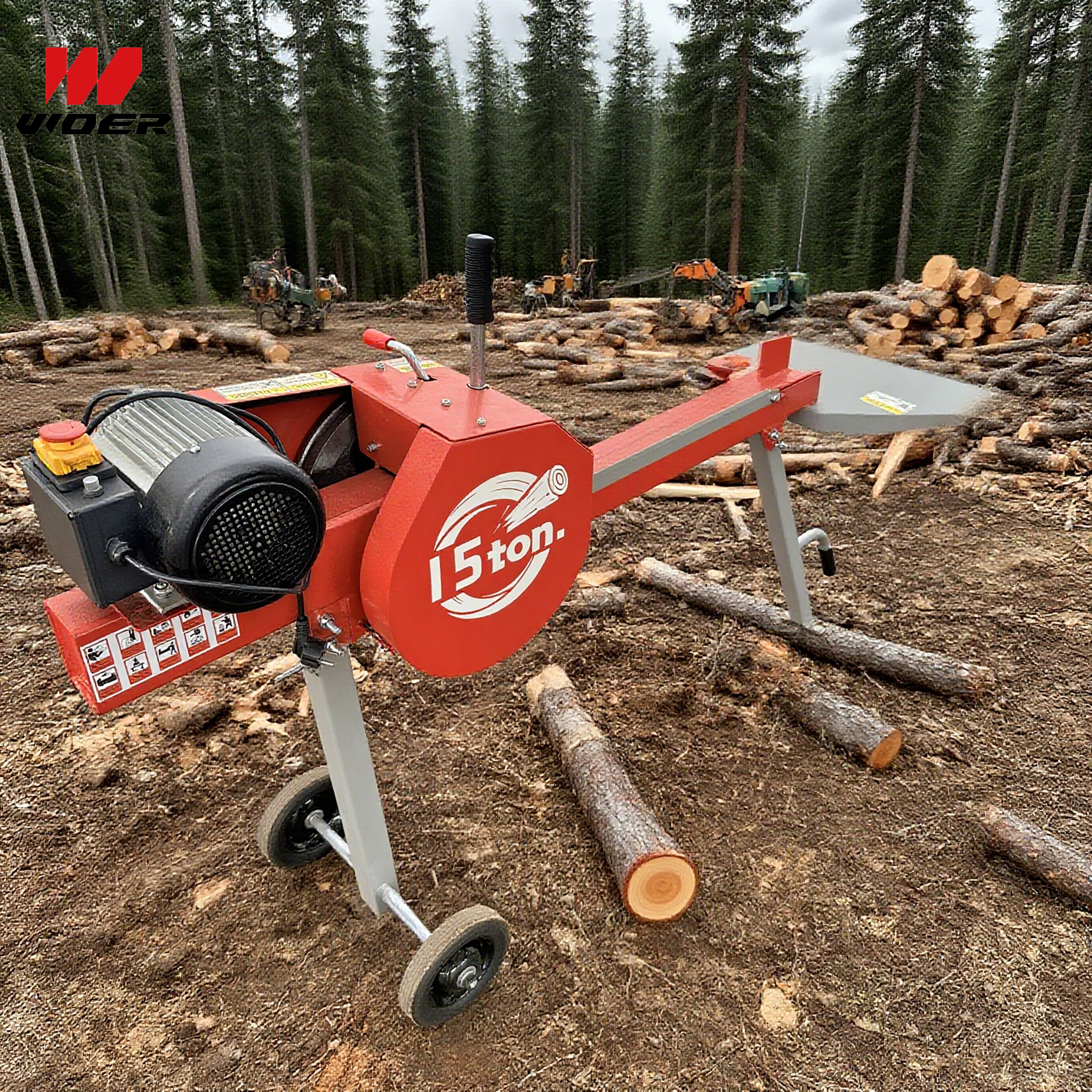Navigation
Contact us
Phone
Message

Comparison Between Small and Large Wood Splitters
Q1: What is the main difference between small and large wood splitters?
A1: Small wood splitters are compact, lightweight, and designed for light-duty tasks, while large wood splitters deliver higher splitting force, handle bigger logs, and are suitable for commercial or industrial use.
Q2: Which type of wood is best suited for small wood splitters?
A2: Small wood splitters work best with softwoods and smaller logs (typically under 10 inches in diameter). They are ideal for household firewood preparation and occasional use.
Q3: What advantages do large wood splitters offer?
A3: Large wood splitters provide high tonnage power, can split hardwoods like oak or maple, and process larger log volumes efficiently. They are preferred in farms, forestry, and commercial firewood operations.
Q4: How do small and large wood splitters differ in portability?
A4: Small wood splitters are portable, easy to move, and often electric-powered, making them convenient for home use. Large splitters are heavier, usually hydraulic, and may require towing equipment.
Q5: What is the cost difference between small and large wood splitters?
A5: Small wood splitters are more affordable, with lower initial investment and maintenance costs. Large splitters cost significantly more but offer greater productivity and long-term value for frequent use.
Q6: How does workload frequency influence the choice?
A6: For occasional or seasonal wood splitting, a small splitter is sufficient. For daily or high-volume splitting, a large splitter is more reliable and efficient.
Q7: Which is safer: small or large wood splitters?
A7: Both types are safe when used properly, but small splitters are easier to control for beginners. Large splitters, while powerful, require strict safety precautions due to higher force and larger moving parts.
Q8: Which wood splitter is better for personal use?
A8: Small wood splitters are generally better for households and personal farms due to their affordability, portability, and simplicity.
Q9: Which is better for commercial forestry operations?
A9: Large hydraulic wood splitters are the top choice for forestry and commercial businesses because they can process heavy hardwood logs in large volumes efficiently.
Q10: What’s the overall conclusion when comparing small vs large wood splitters?
A10: Small splitters are ideal for light, occasional use with softwoods, while large splitters are essential for heavy-duty, frequent, or commercial applications where speed and power are critical.

This stunning beach house property is a true oasis, nestled in a serene coastal community with direct access to the beach.
Contact
West Street, Melbourne Victoria 3000 Australia